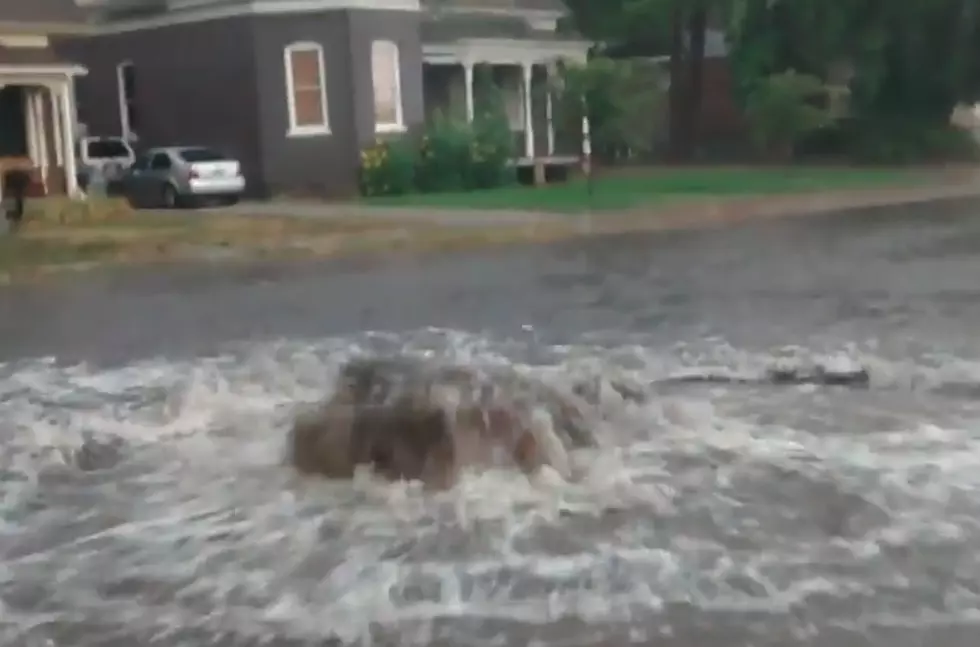
As Death Count Rises In 2 US Shootings, A Familiar Aftermath
Anguished families planned funerals in two U.S. cities, shocked communities built makeshift memorials to 31 victims, politicians pointed fingers and a nation numbed by gun violence wondered Monday what might come next.
Weekend attacks 1,300 miles apart — at a packed shopping center in El Paso, Texas, and a popular nightlife stretch in Dayton, Ohio — also injured dozens more. They became the newest entries on an ever-growing list of mass shooting sites.
For all the back-to-back horror of innocent people slain amid everyday life, decades of an unmistakably American problem of gun violence ensured it wasn't entirely shocking.
Even as the familiar post-shooting rituals played out in both cities, the death toll ticked upward, with two more people dying of injuries sustained in shooting at the Walmart in Texas.
As in a litany of other shooting sites before, the public juggled stories of the goodness seen in lives cut short with inklings of the demented motives of the shooters, and on-scene heroics with troubling ideologies that may have sparked the bloodshed.
Equally familiar, Washington reacted along to party lines, with President Donald Trump's vague suggestion of openness to new gun laws met with skepticism by an opposition that has heard similar talk before.
"Hate has no place in America," Trump declared in a 10-minute speech from the White House Diplomatic Reception Room, condemning racism and rehashing national conversations on treatment for mental health problems, depiction of violence in the media, and discourse on the internet.
A racist screed authorities were working to confirm was left by the alleged perpetrator in the Texas shooting, 21-year-old Patrick Crusius, mirrored some of Trump's anti-immigrant rhetoric, and some opponents of the president have said he shares blame for his inflammatory language. Trump, in turn, tweeted that the media "contributed greatly to the anger and rage that has built up."
Trump suggested a bill to expand gun background checks could be combined with his long-sought effort to toughen the nation's immigration system, but gave no rationale for the pairing. Studies have repeatedly shown immigrants have a lower level of criminality than those born in the U.S., both shooting suspects were citizens, and federal officials are investigating anti-immigrant bias as a potential motive in the Texas massacre.
Democratic Sen. Chris Murphy of Connecticut, a leading voice on gun reform since the 2012 shooting at Sandy Hook Elementary School in his state rattled the country with the slaughter of 20 children, immediately dismissed the president's proposal as meaningless. "Tying background checks to immigration reform is a transparent play to do nothing," he wrote on Twitter.
Whatever the political back-and-forth, or the re-energized presence of gun control talk on the presidential campaign trail, the very real consequences of gun violence were still being bared by victims badly injured in the two states.
In both incidents, a young white male was identified as the lone suspect. Though authorities were eyeing racism as a possible factor in Texas, where the alleged shooter has been booked on murder charges, in Ohio police said there was no indication of a similar motivation. Police in Dayton responded in about 30 seconds early Sunday and fatally shot 24-year-old Connor Betts. While the gunman was white and six of the nine killed were black, police said the quickness of the rampage made any discrimination in the shooting seem unlikely.
Betts' sister was also among the dead.
"It seems to just defy believability he would shoot his own sister, but it's also hard to believe that he didn't recognize it was his sister, so we just don't know," said Dayton Police Chief Richard Biehl.
Ohio Gov. Mike DeWine visited the scene Sunday and said policymakers must consider: "Is there anything we can do in the future to make sure something like this does not happen?"
Hours later, hundreds of people stood at a vigil and vented their frustration at the Republican governor, interrupting him with chants of "Make a change!" and "Do something!" as he talked about the victims.
"People are angry, and they're upset. They should be," said Jennifer Alfrey, 24, of Middletown, who added that she didn't agree with interrupting the vigil but understood why so many did.
In Texas, where 22 were killed, authorities said the accused shooter drove nearly 10 hours from his home in a Dallas suburb. Authorities seemed to take some solace in knowing the shooter wasn't one of their own.
"It's not what we're about," El Paso Mayor Dee Margo said.
More From Classic Rock 105.1





![Michael Thomas Announces Return With Ridiculous Leaping Catch At Training Camp [Video]](http://townsquare.media/site/37/files/2019/01/GettyImages-1094198070.jpg?w=980&q=75)




